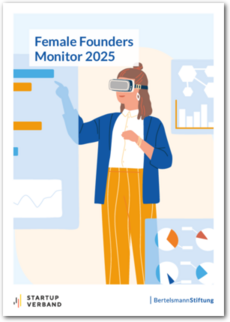The roots of Germany's gender gap in the startup sector lie in early socialization and life experiences. Young women lack visible role models in entrepreneurship, and the country's education system often fails to challenge existing stereotypes. Another major hurdle is the ongoing difficulty of combining family responsibilities with running a business – an area where structural barriers remain firmly in place. These are among the key findings of the study commissioned by the Bertelsmann Stiftung, for which the German Startup Association surveyed over 1,800 startup founders and 1,000 students across Germany.
"Germany can't afford to leave women's potential untapped. They are the country's largest silent reserve," said Verena Pausder, chair of the board of the German Startup Association. "In a time of economic stagnation, we need everyone who can help move the economy forward. Startups are essential to reinvigorating innovation and momentum – and more female founders mean more innovation for Germany."






